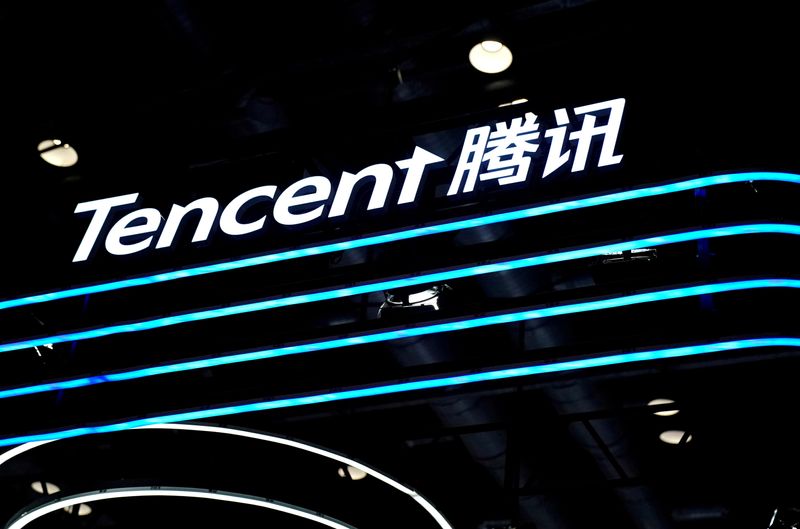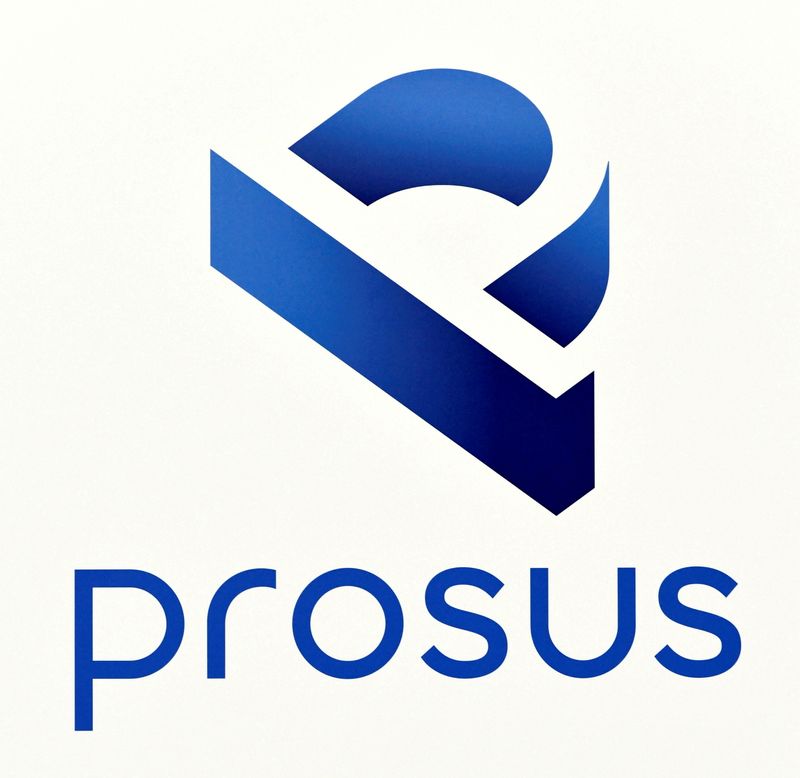AMSTERDAM/JOHANNESBURG (Reuters) – Prosus, which owns a $175 billion minority stake in Chinese internet gaming and social media group Tencent, posted an 8% rise in first-half trading profit to $2.9 billion as revenue rose rapidly in its overall portfolio.
Sometimes compared to SoftBank and its Vision Fund, Prosus NV, owns stakes in a wide range of consumer internet companies, with returns from Tencent Holdings dominating its overall performance.
Although its net profit spiked after Prosus booked a one-time profit of $12.3 billion on the sale of part of its Tencent stake, operating losses at businesses it controls increased.
Prosus said in a statement on Monday that revenues at its e-commerce portfolio had risen by 53% to $4.2 billion, while that segment’s trading loss increased to $372 million from a loss of $214 million in the same period a year ago.
The e-commerce portfolio, which does not include returns from its holding in Tencent, spans a group of businesses that Prosus either owns or controls in classified advertising, food delivery, educational technology and fintech and payments.
Prosus estimated the market value of the e-commerce businesses at around $49 billion.
It showed better profitability in its classifieds businesses, and strong growth at its food delivery businesses, which includes iFood in Brazil and Swiggy in India.
The figures were in line with indications the company had given in a Nov. 16 pre-announcement.
Bob Van Dijk, the Prosus CEO, said he did not expect China’s recent moves to crack down on large technology firms to impact future earnings negatively.
“In spite of some regulation coming up … Tencent is in my view the best-positioned internet company in the most attractive internet market in the world,” he told reporters on a call.
In August, Prosus set up a cross-holding structure with Naspers, under which Prosus shareholders own 60% of their underlying assets but Naspers retains control. They share a single board.
In its separate earnings report, Naspers, South Africa’s largest company by market capitalization, posted half-year revenue of $17.2 billion, up 29% from a year ago.
(Reporting by Toby Sterling and Promit Mukherjee; Editing by Kim Coghill, Muralikumar Anantharaman and Alexander Smith)

























